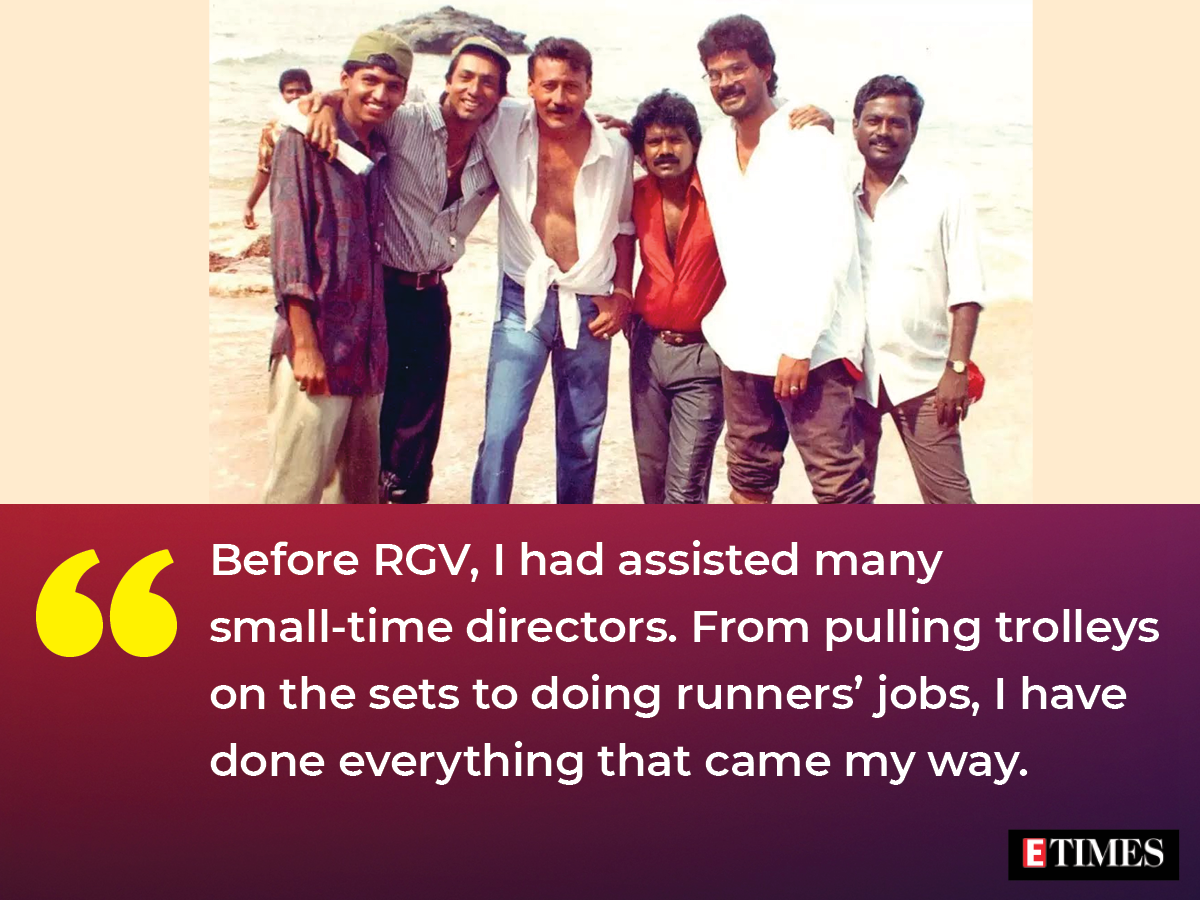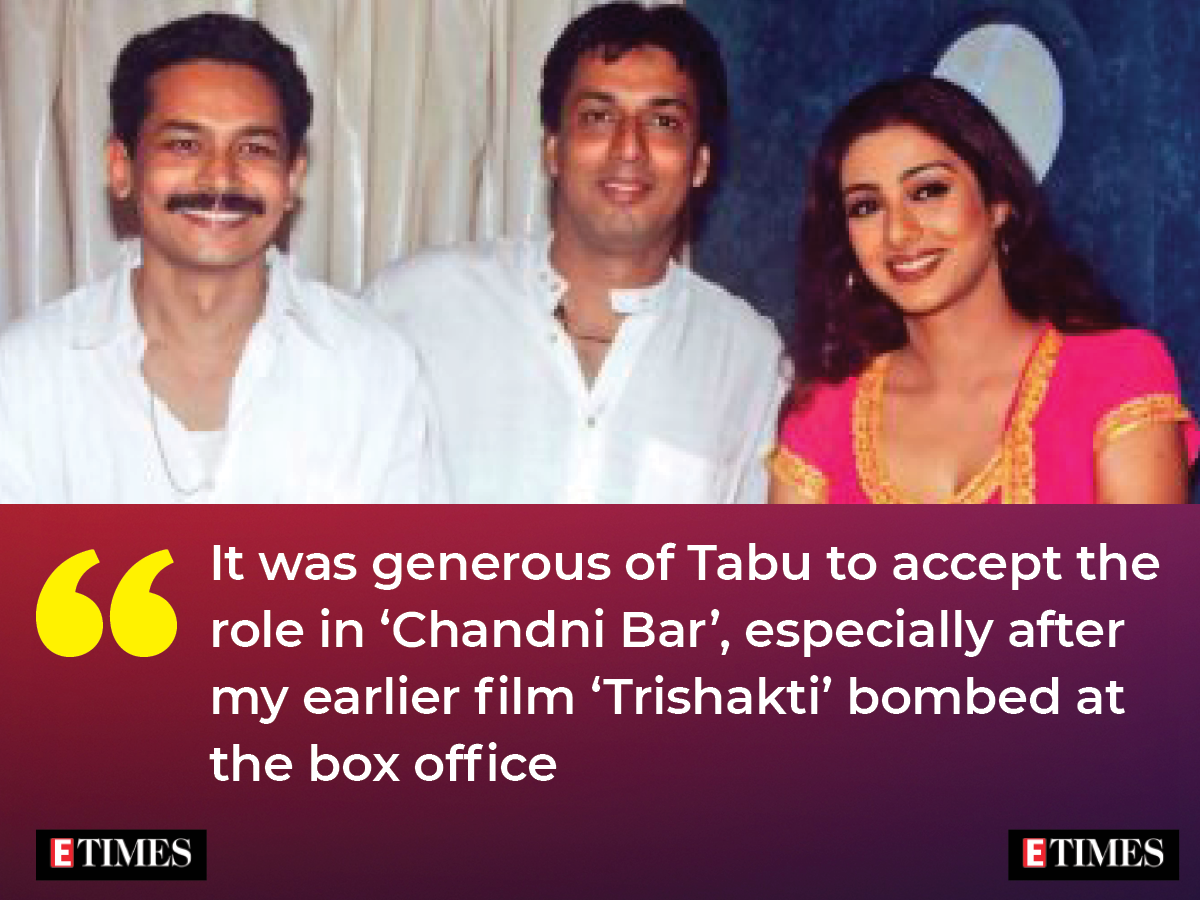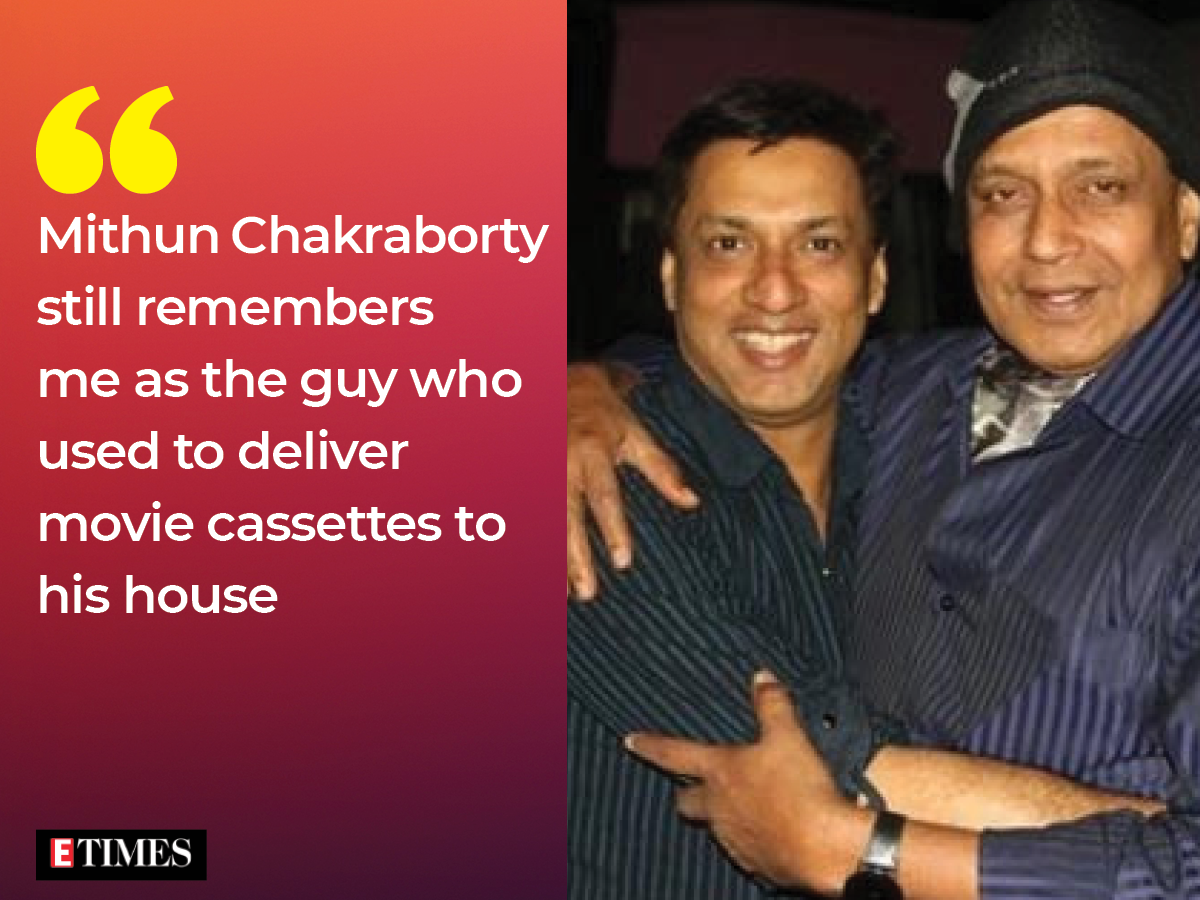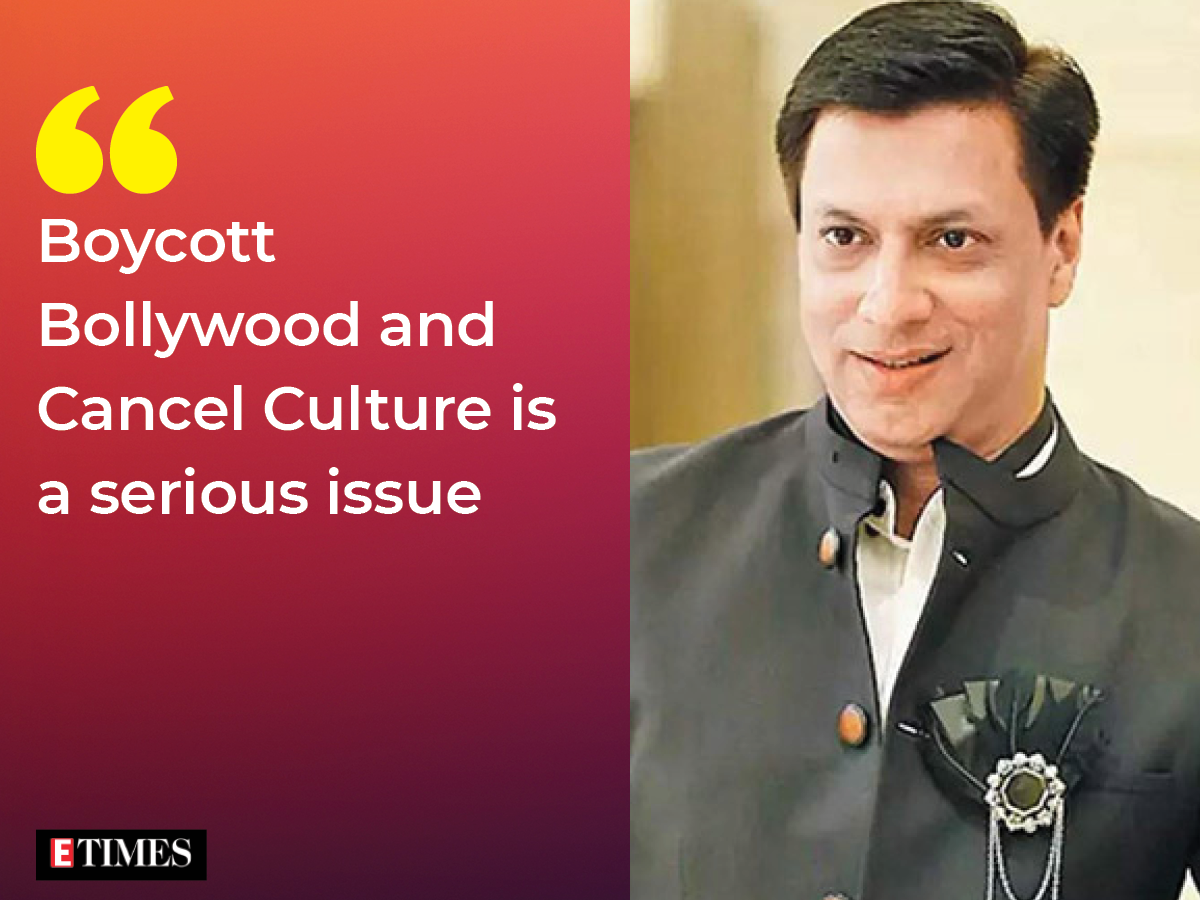Madhur Bhandarkar: From skyscrapers to ‘jhuggi jhopdi’, I have delivered video cassettes to everyone – #BigInterview | Hindi Movie News

‘Chandni Bar’, ‘Fashion’, ‘Page 3’, and ‘Traffic Signal’ are a few movies that mirror our Indian society and Madhur is proud of making such films. The director also speaks about cancel culture and the Boycott Bollywood trend that the Hindi film industry is facing these days. Read on…
From working in a cassette library to doing many other odd jobs, when you look back, how do you feel about your journey?
It feels great! I have loved watching movies since childhood. I came from a very middle-class family, was a very mediocre student, and I was never interested in studies. But I always loved to watch and learn from movies and filmmaking. My love for cinema roots back in my childhood as my mother was a huge film buff and she used to watch films in theatres every Friday. I used to accompany her to every movie screening. I still have memories of sitting on her lap in theatres and watching movies. That’s how I became fascinated by the big screens. Though as a child I didn’t understand much about what was happening on the screen, I was just bowled over by the grandeur and the way a film is made. I even remember watching films on the streets when they were screened on a projector during Ganesh festivals, Diwali, or on other special occasions. I have a very strong memory and I could memorise everything. I knew which film was directed by whom, who were the actors, and who gave music to which film. Google toh abhi aya earlier people used to call me and ask, ‘Madhur ye gaana kaunse movie ka hai?’ and for other information and trivia related to films.
Luckily, I was born in the Khar-Bandra area where the majority of shoots took place, which helped me a lot to learn more about films. My friends and I were always hanging out at the spots where most of the film shoots took place. Interestingly, my friends used to visit shooting spots just to take autographs of the actors but I used to sit there for hours and hours observing the entire process. My friends used to say, ‘autograph mil gaya abhi ghar pe chalo, kitne time se ek hi scene chal raha hai’, but without disturbing the unit, I used to be there on the sets for long hours. Interestingly, since I was always a well-dressed kid, therefore no one objected to why I was sitting on the sets. Instead, many might have thought, ‘ye producer ka koi banda hai isiliye baitha hai’.
I have seen and visited many film sets. ‘Main kisi purani film ke extra artists mein bhi dikhayi dunga’ (laughs). Bandra’s Gaiety Galaxy was my second home. I used to watch movies on repeat just to understand how the film was made, and how the shots were taken. That’s how I started my film journey. Because of my not-so-good financial condition, I worked at a cassette library. From skyscrapers to jhuggi jhopdis, I have delivered video cassettes to everyone.
How did your experience of working odd jobs, before foraying into the film industry, help you in making films?
I have provided cassettes to everyone from the richest to the poor, therefore I had a wide range of experiences. On one hand, I went to Mithun Chakraborty‘s house for delivering cassettes while on the other I also gave video cassettes to sex workers and others residing in slums. I came in contact with a varied range of people and because I love observing them. I started to figure out their choices and got to know how they would react in a certain situation.
Even now when I am at a restaurant or airport, I keep looking at people. They might be thinking why I am staring at them but I simply look at them with an intention to understand what they must be thinking at that point in time and situation. My previous experience of working at a cassette library and doing several other odd jobs helped me a lot in my film journey.
You were an assistant to Ram Gopal Varma. Did any of his maverick qualities influence your directorial sensibility?
Before RGV, I had assisted many small-time directors. From pulling trolleys on the sets to doing runners’ jobs, I have done everything that came my way. I belonged to a very middle-class family and getting into this business was not at all easy for me. Instead, my parents wanted me to settle down and have a job with a fixed and secured monthly income. Apart from working at a video cassette library, I had also been to Muscat for a job but I came back within 15 days and my parents were very angry that I returned within 15 days and wasted the money that they spent on me.

After returning from Muscat, one of my friends introduced me to RGV. He was shooting for ‘Raat’ in Hyderabad and he was going to come to Mumbai for a schedule. During that period, we met and exchanged ideas. He liked my work and then we worked together for ‘Rangeela’.
Why are you always inclined towards making realistic films and not enamoured by large-than-life fantasy films?
I like making films that mirror society. People say I make dark films and also say, ‘Madhur ke naam mein sweetness hai but uske surname mein ‘dark’ bhi hai’. So they call me Madhur Bhan’dark’ar. (laughs). On a serious note, I like making films about experiences. Once I went to a press conference where journalists were rubbing shoulders with top celebrities of the industry and while I came out of that 5-star hotel, the same four reporters were waiting for a cab under the blistering sun. I asked the journalists if I could drop them somewhere, and just then, a thought struck my mind that these were the same journos who were spending time with celebs inside and here they have a different life altogether. That’s how the idea of making ‘Page 3’ came to me.
Contrary to popular belief, I am a very humourous person. People who know me very well say that I should be making comedy films and not these hard-hitting films. I love making films and it’s not that I don’t like making films of different genres.
Your earlier films were commercial, then your acclaimed movies were all middle of the road, and now again, you are gravitating towards commercial movies. Is it a natural phase of thinking or do you follow a plan?
I agree that some of my films were middle of the road and now I have made a commercial film, but I don’t follow a plan. It all depends on the script and the story that comes to me. And if I talk about my latest release, ‘Babli Bouncer’, it is a breath of fresh air.
Do you fear getting irrelevant or being bogged down by unconventional choices?
Nope!
Why is it that your films mostly have female protagonists and the story is always from their perspective? Also, the majority of your films feature a gay character – any particular reason?
It’s not that all my films have a female protagonist, I have male protagonists, too. But yes, the majority of my acclaimed films have female lead stars. I like telling stories from a female perspective as that is also important. I like it when I get to see more films being made with female protagonists. I like stories that are narrated from the female perspective. Earlier people used to say when a hard-hitting film with a female protagonist is made, ‘this is Madhur Bhandarkar’s zone’, but that has changed now.
Talking about having gay characters in my film, I never noticed that before. I always wanted to show all who exist in our society and they all are very much part of it. I just add their characters to make the story look more real and acceptable. I have a few gay friends, too.
You have worked with Priyanka Chopra, Kareena Kapoor, Kangana Ranaut, Tamannaah Bhatia and many A-listers. Who among your heroines are director’s actresses? What do you look for when you finalise your lead actors?
Bipasha Basu, Konkana Sen and Tamannaah Bhatia are directors’ actors. The script chooses its protagonist, too. It all depends on what the film demands.
What memories do you have of Chandni Bar? It was your directorial debut.
I have a lot of memories from ‘Chandni Bar’ because it was my directorial debut. We faced many challenges during the making of that film. It was made on a very low budget. Thanks to Tabu for accepting the role. She still says that she invented Madhur and takes the cake away (laughs). But again, it was generous of her to accept the role, especially after my earlier film ‘Trishakti’ bombed at the box office. She trusted me as a director and accepted the film. During the shoot, we faced many challenges, we didn’t even have monitors on the sets. But all the hard work paid off when I got my first National Award.

Was winning a National Award for ‘Chandni Bar’ an overwhelming experience?
Yes, it was! After my name was called to receive the award, I pinched myself thrice just to make sure that it was real and that I was not dreaming. I still remember I took my mom along with me to the ceremony as I received the award from Pratibhatai Patil, our former President.
Do you get affected by reviews and social media criticism?
No. I never bothered about them. I remember when my film ‘Heroine’ was released, industry people bashed me saying why are you showing our industry in such a way? But I was just being true to my craft. I wanted to show whatever happens in showbiz. There is one scene where the actor calls the paps before making a public appearance. Today that is the reality and everyone knows it. What I showed 10 years back, is happening today, and everyone knows the system. So I never got affected by what people say.
They also say some of my films have abrupt endings. But as I want to show what happens in society, some of my films need that kind of open ending. I take that kind of liberty and leave it to the audience to think as I can’t decide the destiny of some characters in my films.
Over the years, you have collaborated with so many artistes and you must have forged friendships and acquaintances with many people from the industry, too. Any life long connections?
I am connected to everyone in the industry. But there are some people who have known me for a long time. Mithun da still remembers me as the one who delivered cassettes to him. Whenever we meet, he says, ‘Tu kaha cassette deta tha and ab tu kidhar pahuch gaya’. I really miss Lata didi this year. We had a special connection. Whenever my film used to get released, I used to make a phone call to her and discuss it. She used to give blessings and good wishes to me and my film. I always wished her on her birthday and I will miss wishing her this year. I am feeling very sad about it. She was one of the most warm-hearted people in our film industry.

Your life and journey to tinsel town is no less than any realistic film. Any plans to make a film on your own life?
(Laughs). No! I have no plans to make a biopic. I am not ready right now to convert my story into a film. Many people from the industry have asked me this question several times. But right now, I am not ready for it.
You are one of the filmmakers who’s faced Boycott Bollywood and Cancel Culture, long before it became a trend. What do you have to say about these trends becoming popular on social media now?
This is a serious issue. I have spoken to some of producers and distributors about what Hindi films are facing right now. I feel these kind of boycotts and bans do affect the film. The negativity that it carries ultimately results in the overall collection of the film. “Koi janewala bhi hoga film dekhne, ye sab sunke nahi jayega’. So it does affect the film industry.

Are you an overprotective father?
No! I am not overprotective. Kids these days are very smart. It’s not like the days when we used to obey our parents without questioning them. I remember, we used to approach our parents for everything and ask them questions related to anything and everything on Earth. But nowadays there is Google to answer everything. Kids these days don’t come to their parents asking questions, they just Google it. Moreover, social media has added to their lives. “Hamari zubaan nahi khulti thi apne maa-baap ke aage’, and kids these days will straight away have a conversation. My daughter also pinpoints that whenever I wear something that she doesn’t like, she says so to my face. In a way, it’s good to have an open conversation. But these mobile phones and the internet has taken away their childhood. I hardly listen to kids shouting and playing around. Everyone is just pushing their heads into their phones.
Artists tend to get lost in their way, some find their way back, while some don’t; do you agree?
This reminds me of a song by Late Lata Didi, ‘Kitne ajeeb rishte hai yaha pe, do pal milte hai, sath sath chalte hai, jab mod aaye to, bachke nikalte hai’ That is how things work in the industry.




